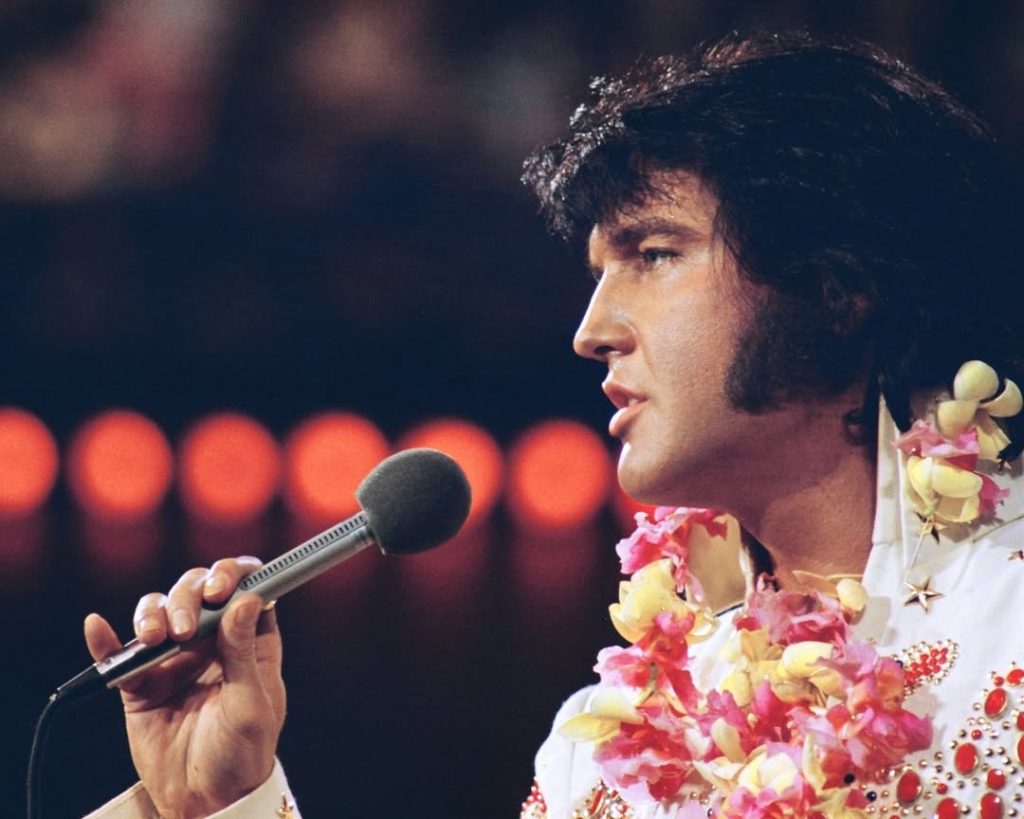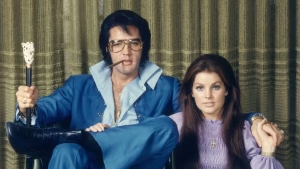Elvis Presley’s Family Tree and History: Unveiling His Scottish Roots and Legacy.
Elvis Presley, often heralded as the King of Rock ‘n’ Roll, stands as one of the most influential figures in music history. Known for his groundbreaking influence on rock music, his powerful stage presence, and his ability to blend different genres of music, Elvis revolutionised the music industry in the 20th century. However, the story of Elvis Presley is not just about his music career; it is also deeply tied to his family history, cultural influences, and roots.
Elvis’s family history stretches back through generations of working-class people who shaped the man who would go on to dominate the global stage. His Southern heritage has been well-documented, but there are parts of his family tree that remain less understood—particularly his Scottish roots. This article will take a deep dive into the Presley family tree, exploring both the familiar and lesser-known aspects of his background, including his Scottish and Anglo-Irish ancestry, and how this heritage contributed to his identity, career, and legacy.
The Early Beginnings of the Presley Family
Elvis Presley was born on January 8, 1935, in Tupelo, Mississippi, to Vernon and Gladys Presley. The Presleys came from humble beginnings and lived a life marked by financial instability, which played a significant role in shaping Elvis’s character. Both parents worked hard to provide for their son, but they were frequently beset by hardships, and the family struggled to make ends meet in the early years.
Elvis’s paternal roots are a tapestry of English, Scottish, and Scots-Irish ancestry, which stretches back to colonial America. While the Presley family’s story in America is linked with the early settlers, their roots in the British Isles remain a rich and crucial part of the history behind Elvis’s upbringing. Many of the family’s early ancestors were part of the first waves of English and Scots-Irish immigrants who settled in the southern states, especially in Mississippi.
The Presley Paternal Line: English, Scottish, and Scots-Irish Heritage
The Presley surname is believed to have Anglo-Saxon origins, derived from the Old English words prescel (meaning “priest’s hill”) and leah (meaning “a clearing or meadow”). It’s thought that the first Presleys to arrive in the United States did so in the 1600s, with early records showing the Presley family arriving in Virginia before spreading across the American colonies. The family’s migration eventually led them to North Carolina and, later, to Mississippi.
It is within this migration that Elvis’s Scottish heritage is embedded. Elvis’s paternal grandfather, Jesse D. Presley, was born in 1889, and his family was from the southeastern United States. Through research, genealogists have found that Jesse’s ancestors were part of the Scots-Irish wave of immigrants who settled in the Appalachian regions and spread into the Mississippi Delta. Scots-Irish settlers brought with them a unique cultural blend of traditions that influenced the South in areas such as music, folklore, and even attitudes toward hardship and perseverance.
The Scots-Irish, many of whom were originally Lowland Scots, migrated to America through Northern Ireland during the 18th century. These settlers often faced religious persecution and economic hardship, leading them to seek better opportunities in the New World. Their descendants played a pivotal role in shaping the southern United States, and their influence can be felt in the folk, country, and bluegrass music that emerged in the region. This musical tradition, particularly the blend of Scottish folk songs and blues, would later play a significant role in shaping Elvis’s distinctive sound.
The Deeper Scottish Roots: The Role of the Scots-Irish Migration
The Scots-Irish, who settled in Appalachia and the southern states, had a profound influence on the culture of the American South. These immigrants were known for their hard work, resilience, and sense of community. In many ways, they were the embodiment of the American frontier spirit. Their musical traditions included ballads, hymns, and fiddle tunes, which later evolved into the country and bluegrass music that was integral to the development of Elvis Presley’s musical style.
Elvis’s paternal family history is a direct reflection of this Scots-Irish heritage. His grandfather, Jesse Presley, would have been raised with these traditional songs and cultural practices, which in turn influenced his son, Vernon Presley. Even though Elvis was raised in the 20th century, the traditional values of his family — particularly the importance of hard work, faith, and perseverance — would shape his attitude toward his career and his rise to fame.
Vernon Presley: The Father of the King
Vernon Presley, born in 1916, was Elvis’s father and played an essential role in his life. While Elvis is often remembered as a cultural icon, his family’s financial struggles were a constant backdrop to his formative years. Vernon and his wife, Gladys, worked tirelessly to provide for their son, but their poverty and inability to find stable work remained a recurring theme throughout their lives.
Vernon’s upbringing in the South — surrounded by the poverty, resilience, and hard work that characterised the Scots-Irish migrants — influenced his role as a father. Despite his lack of formal education, Vernon was determined to give his son a better life. Elvis often spoke about how his father’s sacrifices and tireless work ethic shaped his own approach to life, showing a deep respect for the family’s roots.
Vernon’s role in Elvis’s career is also notable. After Elvis’s rise to fame, Vernon became involved in managing Elvis’s business affairs, although his lack of experience in the industry led to some strained moments in their relationship. Nevertheless, Vernon remained a constant presence in Elvis’s life, and his efforts to ensure that Elvis was financially supported played a key role in sustaining the Presley legacy.
Gladys Presley: Elvis’s Nurturing Mother
Gladys Presley, born in 1912, was the emotional heart of the Presley family. She was the daughter of Robert Lee Smith, a farmer, and Minnie Mae Hood, and spent much of her early life in Pontotoc, Mississippi. Gladys married Vernon Presley, and together they had their only child, Elvis. From an early age, Gladys recognised Elvis’s musical talent and encouraged him to pursue his dreams.
Gladys, who came from a similarly humble background, deeply influenced Elvis’s emotional life and his connection to his heritage. Like Vernon, she shared the strong values of the Southern Scots-Irish immigrants: faith, perseverance, and an unwavering love for family. Gladys’s death in 1958 had a profound effect on Elvis, and he often spoke of the loss as the most significant tragedy of his life.
Her nurturing presence in Elvis’s life also contributed to his passion for music, particularly gospel and blues. Her encouragement to sing in church helped shape Elvis’s musical taste, laying the foundation for his later success as a performer.
The Smith Family: Gladys’s Southern Roots
Gladys’s side of the family, the Smiths, also came from a Southern background. Her father, Robert Lee Smith, was a farmer in Mississippi. Like Vernon’s family, the Smiths were not wealthy, but they were deeply rooted in the traditions of the South. The Smith family, though not as well-documented as the Presley side, had their own role in shaping Elvis’s emotional and cultural identity.
Despite the economic challenges faced by both sides of Elvis’s family, they shared a common thread of resilience and a deep connection to their Southern and Scots-Irish roots. This sense of perseverance would be a crucial part of the Presley family’s journey, particularly when it came to navigating Elvis’s meteoric rise to fame.
The Extended Family: Cousins and Close Relatives
Elvis’s extended family also played a pivotal role in his life. Many of his cousins, aunts, and uncles were involved in his upbringing, though their roles were often less publicly acknowledged. One notable cousin was Billy Smith, who was particularly close to Elvis. Billy grew up with Elvis in Tupelo and remained a confidant throughout his life. He often accompanied Elvis on tours and was a member of the “Memphis Mafia,” the close-knit group of friends who helped manage Elvis’s personal and professional affairs.
Billy’s role as a close family member and confidant was vital in helping Elvis navigate the pressures of fame. Elvis trusted Billy, and their bond was one of the few in his life that remained steadfast amid the constant challenges of being a global superstar.
Priscilla Presley and the Next Generation
Perhaps one of the most significant relationships in Elvis’s life was with Priscilla Presley, whom he married in 1967. Priscilla not only gave birth to Elvis’s only child, Lisa Marie Presley, but also became an essential figure in the preservation of his legacy. After Elvis’s death, Priscilla worked tirelessly to ensure that Graceland was maintained as a historical site and that Elvis’s music and impact on popular culture continued to be celebrated.
Priscilla Presley’s involvement in the family legacy is just as important as Elvis’s immediate descendants. Through her work at Graceland and her own personal achievements in business and entertainment, Priscilla has remained a central figure in the Presley narrative. Her efforts to maintain the Presley estate, both financially and culturally, have kept the name of Elvis Presley alive for generations to come.

Brigitte Kruse with Priscilla Presley
Lisa Marie Presley: The Heir to the Throne
Elvis’s only child, Lisa Marie Presley, was born on February 1, 1968, and was the heir to Elvis’s estate. Lisa Marie, who has had a career in music as well as in acting, has worked to maintain her father’s legacy while also carving out her own path in the world. Her relationship with Elvis’s legacy is complicated, and she has faced her own challenges as the daughter of such a massive cultural figure.
In recent years, Lisa Marie has taken a more active role in managing the family’s legacy. After the deaths of both her son, Benjamin Keough, and her ex-husband, Michael Jackson, Lisa Marie has continued to push forward, ensuring that her father’s memory and influence remain relevant to new generations of fans.
Elvis Presley’s family tree is far richer and more expansive than many realise. From his Scottish roots to his close-knit Southern upbringing, the Presley family played an essential role in shaping the King of Rock ‘n’ Roll. Through their legacy, we not only see the history of a musical icon but also the deep familial ties that underpinned his extraordinary journey. The Presleys’ resilience, values, and love for music shaped Elvis in ways that have left an indelible mark on music history, and the echoes of their influence continue to be felt to this day.
Sadly, the Presley family legacy has been forever altered with the passing of Lisa Marie Presley, Elvis's only daughter. Lisa Marie, who passed away on January 12, 2023, at the age of 54, was not only the heir to Elvis's estate but also the steward of his memory. As the keeper of Graceland and his musical legacy, Lisa Marie played a crucial role in ensuring that her father's contributions to music and popular culture were preserved for future generations.
Her untimely passing marks a heartbreaking chapter in the ongoing story of the Presley family, but her work to protect Elvis’s legacy endures. Today, the Presley name continues to live on, immortalised through the music and cultural impact of Elvis himself, and in the memories of those who have shared in his extraordinary life.
Elvis Presley’s Net Worth: The King’s $20 Million Legacy
Elvis Presley’s career spanned more than two decades, during which he released a staggering number of songs that not only shaped the music industry but also achieved tremendous commercial success. Here are the Top 10 Elvis Presley Songs by Commercial Success, based on factors such as chart performance, sales, and overall impact:
1. "Hound Dog" (1956)
- Commercial Success: Widely regarded as one of Elvis's most iconic songs, "Hound Dog" spent 11 weeks at #1 on the Billboard pop chart and became one of the best-selling singles of all time.
- Chart Performance: #1 on Billboard's Pop, R&B, and Country charts.
- Sales: Over 10 million copies sold worldwide.
"Hound Dog" marked a turning point in Elvis's career, representing a shift towards a more rebellious, rock 'n' roll image. The song’s energetic delivery and catchy riff cemented his status as the King of Rock.
2. "Love Me Tender" (1956)
- Commercial Success: A massive hit from the very beginning, "Love Me Tender" dominated the charts and was featured in Elvis’s first film of the same name.
- Chart Performance: #1 on the Billboard Pop chart.
- Sales: Over 1 million copies sold in the U.S. alone.
This ballad showcased Elvis’s softer side, and its overwhelming success confirmed his versatility as an artist capable of both rocking and crooning.
3. "Jailhouse Rock" (1957)
- Commercial Success: "Jailhouse Rock" is one of Elvis's most recognisable songs and has been a lasting part of pop culture.
- Chart Performance: #1 on the Billboard Pop and R&B charts.
- Sales: Over 8 million copies sold worldwide.
The title track from the movie Jailhouse Rock, with its unforgettable dance sequences and Elvis's charismatic performance, became a cornerstone of rock 'n' roll.
4. "Can't Help Falling in Love" (1961)
- Commercial Success: This timeless ballad from Blue Hawaii remains one of the most popular songs in Elvis's catalog.
- Chart Performance: #2 on the Billboard Hot 100 and #1 on the Adult Contemporary chart.
- Sales: Over 2 million copies sold in the U.S.
The gentle, romantic tone of this song continues to make it a favourite at weddings, and its enduring popularity keeps it in Elvis’s top songs for many fans worldwide.
5. "It's Now or Never" (1960)
- Commercial Success: A stunning success in Europe, particularly in the UK, where it spent weeks at #1.
- Chart Performance: #1 in the UK and #4 in the U.S.
- Sales: Over 25 million copies sold worldwide.
Inspired by the Italian song "O Sole Mio," this song merged Elvis’s rock background with a romantic ballad, making it a cross-genre hit that remains one of his most beloved songs.
6. "Suspicious Minds" (1969)
- Commercial Success: Marking Elvis's comeback to the top of the charts, "Suspicious Minds" was a major hit during the late '60s.
- Chart Performance: #1 on the Billboard Hot 100.
- Sales: Over 2 million copies sold in the U.S.
"Suspicious Minds" is considered a defining track of Elvis’s career, showcasing his vocal prowess and emotional depth, particularly in the realm of pop and country crossover.
7. "Heartbreak Hotel" (1956)
- Commercial Success: Released shortly after the release of "Hound Dog," this single helped to solidify Elvis’s place in music history.
- Chart Performance: #1 on the Billboard Pop chart.
- Sales: Over 5 million copies sold.
"Heartbreak Hotel" introduced a more moody and bluesy side of Elvis’s musical repertoire, becoming an anthem for the brokenhearted.
8. "All Shook Up" (1957)
- Commercial Success: Another hit that defined the '50s rock and roll era, "All Shook Up" became one of Elvis’s signature songs.
- Chart Performance: #1 on the Billboard Hot 100 for 8 weeks.
- Sales: Over 7 million copies sold globally.
This song exemplified Elvis’s playful, energetic performance style and was a commercial triumph across all music charts.
9. "Burning Love" (1972)
- Commercial Success: "Burning Love" represented a revival in Elvis’s career in the early '70s and is one of his most successful tracks from that period.
- Chart Performance: #2 on the Billboard Hot 100.
- Sales: Over 3 million copies sold.
As one of his last major hits, "Burning Love" showcased a more mature, funky side of Elvis and helped to bridge the gap between '50s rock and early '70s pop.
10. "Are You Lonesome Tonight?" (1960)
- Commercial Success: One of the biggest ballads in Elvis's career, this song found success both in the U.S. and internationally.
- Chart Performance: #1 on the Billboard Hot 100.
- Sales: Over 3 million copies sold.
This heartbreaking ballad is remembered for its tender vocals and emotional delivery, securing a lasting place in Elvis’s impressive discography.
These 10 songs represent some of the most commercially successful tracks in Elvis Presley’s career, spanning across his early rock 'n' roll days, his ballad-driven pop moments, and his powerful later years. Whether showcasing his commanding stage presence, vocal versatility, or emotional depth, each of these songs contributed to shaping Elvis’s lasting legacy as one of the greatest musical icons of all time.
Though the King of Rock ‘n’ Roll has long since passed, these songs continue to resonate with fans worldwide, ensuring that Elvis’s place in music history remains ever-strong.





















